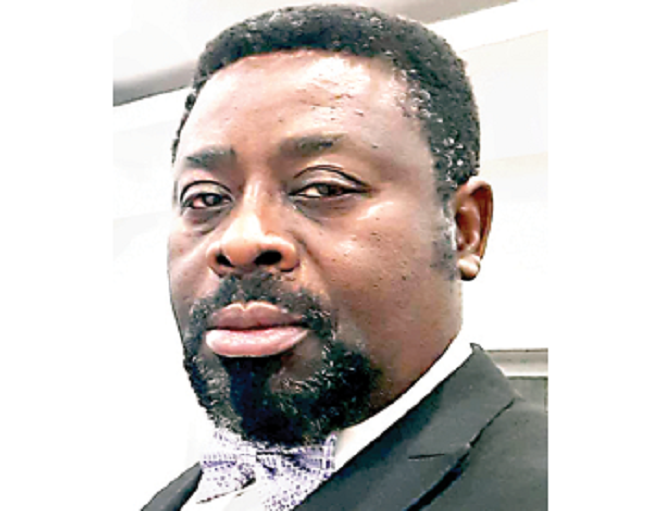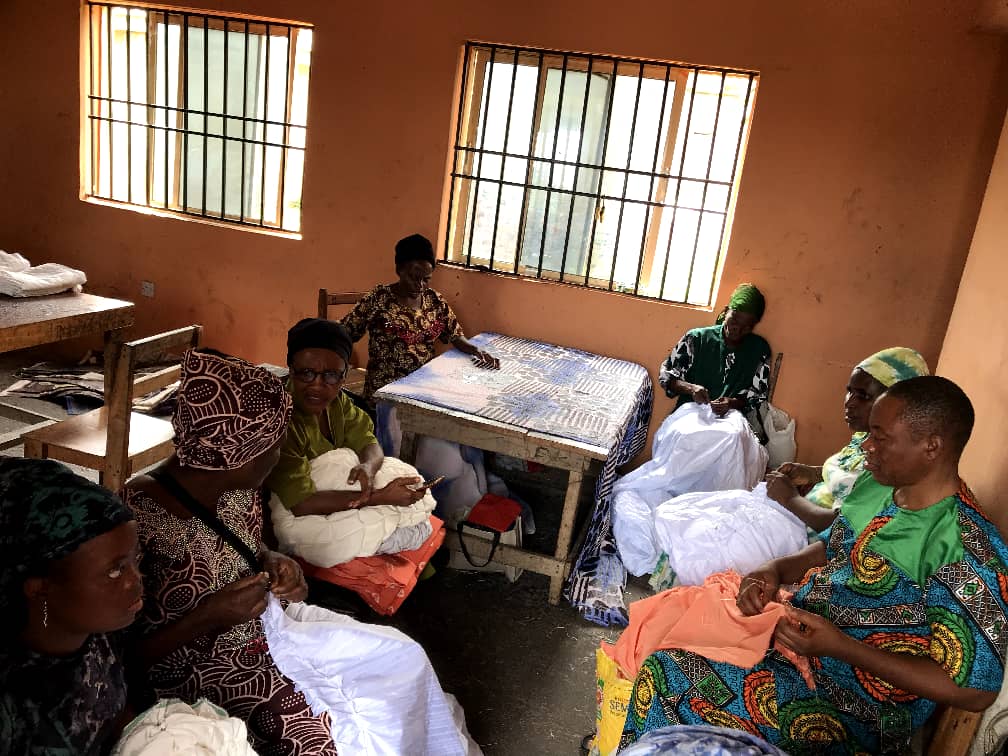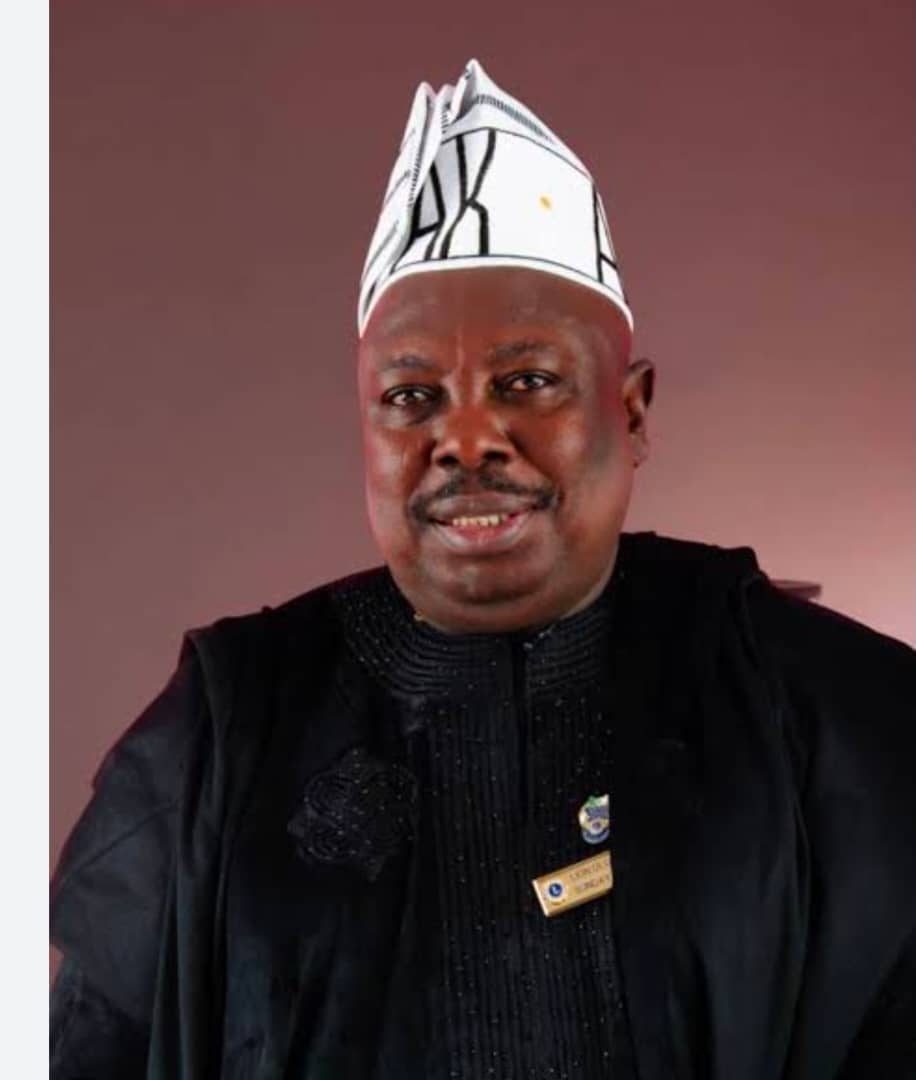Why there is wide gap between funding and administration of basic health care in Nigeria — Dr. Oshunniyi
[ad_1]
In this interview by SADE OGUNTOLA, the chief executive officer of AIICO Multishield HMO and chairman of the Health and Managed Care Association of Nigeria (HMCAN), the largest umbrella body of HMOs in Nigeria, Dr. Leke Oshunniyi, speaks on how to ensure national health insurance can achieve universal health coverage (UHC) for all.
THE health Insurance law was reformed recently; why was the reform important?
The National Health Insurance Decree (later Act) 35 was passed on the 29th of May 1999, the same day the government of General Abdudlsalami Abubakar ended. Unfortunately, the law was grievously marred by the use of the word “may” in section 16, instead of the word “shall” thereby making it an optional law. So, since May 30th, 1999, my group, the Health and Managed Care Association of Nigeria had been trying to see that the “may” got altered to “shall”, making it compulsory. With the new National Health Insurance Authority Act of May 2022, 90 per cent of the deficiencies of the initial law, which are the overriding issues, have been tackled.
However, the law has not been operationalised. Whenever a complex law is enacted, there are always guidelines to regulate its implementation. Howbeit, there are some desirable things that my association, the Health and Managed Care Association of Nigeria want to see in the yet-to-be-articulated guidelines.
The law, for example, says that the states should supervise the health schemes in their jurisdictions. It also says that the civil service scheme and vulnerable groups’ schemes should continue to be run at the federal level. Now, it is important that those two tiers of regulation are sustained and that none of the regulators exceeds their bounds. That is very important so that there is order in the system. It is also important to try and reach an agreement with all the states on the basic provisions of the law; for example, what is the basket of benefits that people who subscribe to the schemes will enjoy?
Is it not uniform across the states?
It is not uniform yet; for instance, the benefits each enrollee gets in Oyo State are different from Kwara State. The basic health package should be the same across the country. If everybody is given absolute freedom, there will be no order, no harmony. Ensuring uniformity makes it possible that the regulators in both states can talk to each other to ensure everyone under the health insurance scheme, irrespective of where they find themselves in emergencies, can also access care.
Currently, the states in the country have some latitude in interpreting the way the law should work, but they don’t have a free hand under the law so that we can have a harmonious whole.
We must roll out a master information technology backbone. I am aware that the National Health Insurance Authority (NHIA) is already working on a platform which can manage even the whole of West Africa. That tool alone will revolutionise healthcare delivery in the country because it can tell us for instance the incidence of diseases and who is getting ill. Of course, planning is easier and the disbursement of resources is facilitated since health statistics would be readily available.
If 90 per cent of deficiencies of the overriding issues in the law have been tackled, what other conflicts do you foresee?
We are trying to anticipate what can happen in the future. We are saying that a regulator is best when they keep to the mandate of regulation and do not become operators so that they will adjudicate fairly between the stakeholders. Just like a football referee, if the referee starts to participate in the match, then there is bound to be chaos. It is always best for regulators to plan for the industry, seek to grow the industry and ensure equity for all stakeholders.
We are foreseeing that there might be a conflict under the new law between the state health insurance agencies and the national regulator, the NHIA. The new law says that the states and the Federal Capital Territory will be in charge of the regulations and the management of health insurance in their jurisdictions. Now, what that does is that it leaves no territory for the national regulator. Technically, depending on the interpretation of the law, the federal may not be able to sell any health insurance plan in the states. The apex regulator has a plan called the GIFSHIPPLAN. It is a group, individual and family social health insurance programme, which they have been selling across Nigeria. Now, technically, they may not be under the new law, be able to do that. A possible conflict situation must be anticipated and nipped in the bud.
Part of the basic health care fund is pumped into the national health insurance scheme to ensure coverage for vulnerable groups. Will that work if NHIA sticks to regulation roles and is not involved in the provision of care?
One per cent of the consolidated revenue fund of the federation is set aside for health care. Half of that money goes to the NHIA to administer. It is shared with states in the country based on their compliance with guidelines for disbursing the fund and population. But that money is not enough to ensure universal health coverage. It is estimated that N12,000 is required to cover one person in a year under the scheme.
The NHIA is interested in this initiative to source funds to treat the vulnerable group, with an estimated population of 83 million, which include those who are unable to afford the cost of care like the elderly, very young children and the poor. At N12,000 per person per annum, about one trillion naira is required. If you compare the fund NHIA is to administer to what is required to ensure basic health coverage for everyone, there is a wide gap. That basic health care provision fund is inadequate from the beginning.
Complaints by enrollees include being served generic drugs which most times are not effective and providers saying they cannot have some tests done because they don’t have the facility for it. How best can that be resolved to ensure enrollee satisfaction?
Because the old law was optional, certain sanctions prescribed for misdemeanors and misbehavior could not be implemented. But enrolling in health insurance now is compulsory for everyone. A defaulter may be liable under the law for prosecution. A lot of the time, HMOs themselves are not paid promptly, causing hiccups in the day-to-day provision of care to enrollees. One very good point about this law is that erring stakeholders within the scheme can be sanctioned. This is a new regime where everybody needs to behave properly.
Again, NHIA is looking at branding drugs as NHIA to assure people. As far as HMOs are concerned, unless the drug is fake, generic drugs are as good as the original brands. So, this idea of “I don’t want the generic drug, I want branded drugs”, is poor culture. We cannot afford it, how much are you paying in the scheme; N12,000 per annum, meanwhile you are asking for a drug that will cost N5,000 on one visit! That’s unsustainable. However, you can take a higher-level plan at a much greater cost, which allows you to buy the brand you want and send us the prescription. Reimbursement is automatic.
How can an enrollee ensure redress under this new law?
Technically every HMO should have a 24/7 call centre where enrollees can call for assistance and information. If you are eligible for care, there is no reason you should be deprived of the service. But we find that sometimes, providers change the game despite signed contracts to provide care. Occasionally, with an enrollee awaiting surgery in the theatre, we get calls from providers, demanding an immediate increase in fees, saying that the price for the operation in the contract can no longer work and they will lose money if they should go ahead with the surgery. We have seen that happen so many times.
Ideally, regardless of whether they are going to lose money or not, the providers should provide care, but it is also not the fault of the provider that costs have gone up, so we need to have some kind of dialogue to agree on how to manage such situations. We cannot just dismiss such occurrences, as the providers may well be bankrupted by the twin evils of inflation and devaluation.
But the providers are saying that the capitation is too small and being on the scheme is not profitable to them?
Everyone doesn’t use the scheme at the same time. At any given point in time, healthy people on health plans are paying for the sick on the same plans. That’s the principle of health insurance. We don’t look at the single figure, we look at the entirety. How many people are coming to the hospital or, what is the utilization? That is where the margin is for the provider. If you don’t have an IT system that can do computations for you very quickly, you may think that you are losing money, whereas, you are gaining money. Now that it has been made mandatory, everybody must subscribe. The beauty of insurance is that the larger the numbers, the lower the cost. It also makes sure that there is little or no out-of-pocket payment for health care.
What is your advice on the plan to buy to ensure good health?
Let me use an analogy. Suppose the government promises that it will provide mechanical transport for every Nigerian so that people wouldn’t have to walk long distances. Mechanical transport is anything from a bicycle, to a motorcycle to a car. All of them are easier than walking and they will get you to your destination on time. Comfort is the only thing that differs. The new Act seeks a similar objective about health care. The law has placed us firmly on the path to Universal Healthcare Coverage (UHC). Without such a programme, fellow citizens would be condemned to a life without effective and affordable health care.
, making them prone to catastrophic health expenditures. This is why we must all become engaged in this enormous and nationalistic undertaking.
[ad_2]















Post Comment